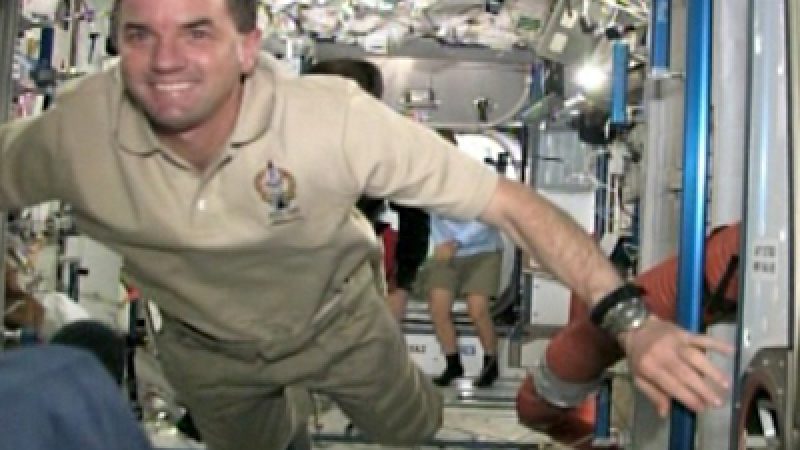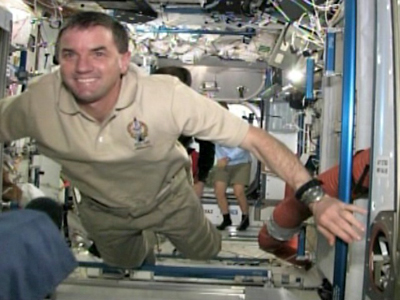
Atlantis Docks at Space Station on Last Mission

U.S. space shuttle Atlantis arrived at the International Space Station on Sunday to deliver a last batch of supplies to the orbiting outpost on the final flight of the U.S. shuttle program.
Commander Chris Ferguson gently eased Atlantis into its parking slip on the station’s Harmony node at 11:07 a.m. EDT as the spacecraft soared 230 miles over the Pacific Ocean.
Crews opened Atlantis’ hatch less than two hours later and the shuttle’s 4-member crew floated through the airlock into the recently completed $100 billion orbital outpost.
Crew members from the space station and shuttle greeted one another with hugs in a meeting captured by television cameras on board and relayed live back to earth.
After a 30-year history that has cost nearly $200 billion and claimed the lives of 14 astronauts, the shuttles are being retired to make way for a new generation of spacecraft.
The docking capped a two-day journey that began with an emotional send-off from the Kennedy Space Center.
About 1 million spectators gathered on Friday to watch the shuttle thunder into the sky for the program’s 135th and final flight.
Atlantis carries more than 5 tons of food, clothing, spare parts, science equipment and other supplies for the station, a project involving 16 nations that took more than a decade to assemble.
NASA devoted 37 shuttle missions to building and outfitting the outpost.
Now that the station is complete, the United States is ending its 30-year-old shuttle program to pave the way for new spaceships that can travel to the moon, asteroids and other destinations in deep space.
 Foto: NTD
Foto: NTD



























vielen Dank, dass Sie unseren Kommentar-Bereich nutzen.
Bitte verzichten Sie auf Unterstellungen, Schimpfworte, aggressive Formulierungen und Werbe-Links. Solche Kommentare werden wir nicht veröffentlichen. Dies umfasst ebenso abschweifende Kommentare, die keinen konkreten Bezug zum jeweiligen Artikel haben. Viele Kommentare waren bisher schon anregend und auf die Themen bezogen. Wir bitten Sie um eine Qualität, die den Artikeln entspricht, so haben wir alle etwas davon.
Da wir die Verantwortung für jeden veröffentlichten Kommentar tragen, geben wir Kommentare erst nach einer Prüfung frei. Je nach Aufkommen kann es deswegen zu zeitlichen Verzögerungen kommen.
Ihre Epoch Times - Redaktion